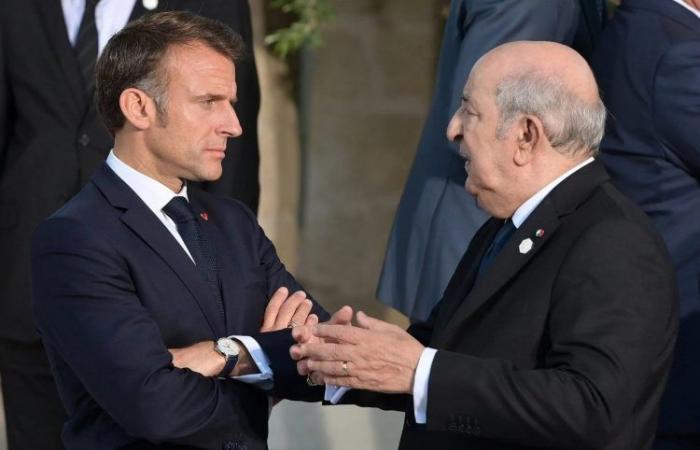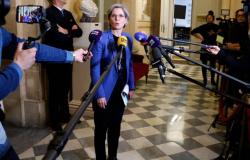
Diplomatic relations between France and Algeria, already weakened in recent years by deep differences on sensitive issues, are taking a more tense turn with the affair of Algerian “influencers”, which is fueling a new wave of reproaches and tensions. between the two countries.
The French Minister of the Interior, Bruno Retailleau, announced on Tuesday the arrest of a new Algerian influencer on French soil. This individual is accused of having published a video in which he expressed his intention to commit violent actions in France, a gesture which immediately aroused the anger of the French authorities. The influencer was part of a group of personalities from the digital world who, according to Paris, largely contributed to spreading provocative content calling for violence and destabilization.
This repression takes place in a context of increasingly palpable tensions between France and Algeria, which engage in exchanges of harsh statements, each accusing the other of hostile behavior. Earlier this month, Bruno Retailleau expressed serious concerns about the evolution of bilateral relations, describing the situation as “extremely worrying” and referring to the “threshold” that had been crossed in the nature of exchanges between the two governments. . The French interior minister did not hesitate to accuse the Algerian regime of seeking to humiliate France, a claim that fueled growing hostility.
Read also: Pro-Algerian influencers: “We must evaluate all the means at our disposal vis-à-vis Algeria” (Bruno Retailleau)
As tensions have intensified, particularly earlier this year, other voices in France, such as that of Justice Minister Gérald Darmanin, have taken more drastic measures. Darmanin expressed his desire to question the Franco-Algerian agreement which allowed Algerian officials to travel to France without a visa. “The current situation can no longer be tolerated,” he said, stressing the need for a firm response to what he sees as a continuing affront by the Algerian regime.
The French authorities particularly reacted after Algeria’s refusal to welcome one of the influencers recently expelled from France. This refusal was interpreted by Paris as a sign of worsening diplomatic relations, marked by a war of declarations and a policy of reprisals.
-The climate became even more tense after the arrest of Algerian writer and opponent Boualem Sansal in Algeria last year. The latter, known for his harsh criticism of the Algiers regime, was arrested at Algiers airport, accused of “endangering state security” for having publicly denounced the abuses of Algerian power. This detention was seen in Paris as a new example of the Algerian regime’s hostility towards those who dare to criticize its authority.
The Algerian authorities, for their part, do not hide their dissatisfaction. The media Al24 News published an article denouncing an alleged “disinformation” campaign led by “far-right factions in France” and elements it describes as “extremists” and “racists”. According to this same media, this war of words only exacerbates internal fractures in France, where several political voices, from the left as well as the right, condemn the way in which the government treats Algerians and the question of historical memory.
The culmination of this tension was reached recently with the French authorities’ evocation of a “cold war climate”, fueled by symbolic acts such as the expulsion of influencers and the accusation of Algerian personalities by the French media. These events reinforced the perception of a breakdown in historical ties between Algiers and Paris, linked by decades of colonization and struggles for the recognition of memory.





